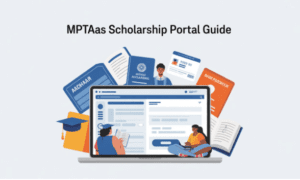Education is the backbone of every nation, and it’s no different for Romania. The country has made significant strides in improving its education system over the years, but there are still concerns about the quality of education being imparted to students. One way that Romania seeks to ensure high-quality education is through national assessments. But just how effective is this approach? In this blog post, we’ll explore the impact of national assessment on the quality of education in Romania and whether it truly lives up to expectations. So grab a cup of coffee and let’s dive into the world of Romanian education! subiecte evaluare nationala 2023
Introduction to National Assessment in Romania
National Assessment in Romania is a process through which the Romanian Ministry of Education and Research evaluates the educational system in Romania. The National Assessment is conducted every four years, with the most recent one taking place in 2016.
The National Assessment covers all aspects of education in Romania, from early childhood education to higher education. It assesses both the quality of education and the outcomes of education. The National Assessment is an important tool for ensuring quality education in Romania.
The National Assessment is conducted by an independent body, the National Centre for Educational Quality Enhancement. The National Centre for Educational Quality Enhancement was established by the Romanian Ministry of Education and Research in 2006.
The National Centre for Educational Quality Enhancement conducts the National Assessment by collecting data from a variety of sources, including schools, teachers, students, and parents. The data is then analyzed and used to produce report cards for each school in Romania.
The report cards show how well each school is doing in terms of educational quality and outcomes. They also provide recommendations for improvement. The report cards are made public so that parents can make informed decisions about which schools to send their children to.
The National Assessment is an important tool for ensuring quality education in Romania. It provides valuable information about the strengths and weaknesses of the Romanian educational system. It also helps to identify areas where improvements are needed.
Types of Assessments Used in Romania
There are three types of assessments used in Romania: summative, formative, and diagnostic. Summative assessments are used to measure student learning at the end of a unit or course. Formative assessments are used to provide feedback during the learning process. Diagnostic assessments are used to identify students’ strengths and weaknesses at the beginning of a unit or course. subiecte bacalaureat 2023
Pros and Cons of National Assessment
There is no single answer to the question of whether national assessment is effective in ensuring quality education in Romania. The pros and cons of national assessment must be considered in light of the specific context within which the assessment is being conducted.
On the one hand, national assessment can be seen as a way to ensure that all students in Romania have access to quality education. By assessing student learning outcomes on a regular basis, educational leaders can identify areas where improvements need to be made. Additionally, national assessment can help to hold schools and teachers accountable for student learning.
On the other hand, some argue that national assessment does not always accurately reflect what students know and are able to do. In particular, critics point to the fact that standardized tests often focus on low-level skills such as rote memorization. Furthermore, some believe that too much emphasis on testing can lead to “teaching to the test” rather than promoting deeper understanding and critical thinking among students.
Ultimately, it is up to each individual school district or country to decide whether or not national assessment is right for them. There are pros and cons to consider, but ultimately the decision will come down to what best meets the needs of students in Romania.
Effects of National Assessment on Student Performance
There is no denying that national assessment plays a significant role in ensuring quality education in Romania. By testing students on their knowledge and skills, national assessment provides educators with valuable feedback on what areas need improvement. In addition, national assessment can also motivate students to do their best and work hard to improve their performance.
Despite the advantages of national assessment, there are also some drawbacks that need to be considered. For instance, some students may feel anxious or stressed about taking tests, which can impact their performance. In addition, national assessment results can sometimes be used to compare and rank schools, which may create an unhealthy sense of competition among educators. Finally, because national assessments are often based on standardized curriculum, they may not always accurately reflect the unique strengths and challenges of each individual student.
Overall, national assessment is a powerful tool for ensuring quality education in Romania. Although there are some potential disadvantages that should be taken into account, the benefits of national assessment far outweigh any negative effects.



































